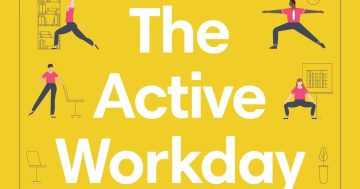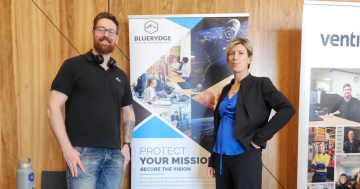Rachel Morrison* believes there is a place in organisations both for challenge seekers and those who prefer to work within their competencies.
 In the movie, Oceans 8, Debbie Ocean is asked why she felt the need to organise a multi-million-dollar jewellery heist.
In the movie, Oceans 8, Debbie Ocean is asked why she felt the need to organise a multi-million-dollar jewellery heist.
She replies: “Because it’s what I’m good at.”
Within the workplace, deriving genuine enjoyment from being skilled at something, and using those skills and abilities to succeed, is a very rewarding experience.
This feeling, along with the jewels, is what Debbie was after.
On the other hand, risking failure with unfamiliar tasks can be a terrifying experience, even though ultimately rewarding if we succeed.
This relates to ‘self-efficacy beliefs’ — workers’ perceptions about their competence or ability.
Our research shows interesting gender differences in whether people prefer feeling either truly capable or else challenged to stretch their abilities.
High self-efficacy beliefs predict both enjoyment and success at work.
Low self-efficacy beliefs characterise what has become known as the imposter phenomenon.
This is characterised by feelings of inadequacy or being a fake.
It implies self-doubt and is usually associated with a level of anxiety.
The phrase was coined by psychotherapist, Pauline Clance who described it as an “internal experience of intellectual phoniness” and “feeling like a fraud”.
Not only is this very unpleasant, it is also extraordinarily common, both anecdotally and in research findings.
High-achieving women (but far fewer men) often retrospectively report feeling anxious and expecting people to notice they had been hired “by accident” into senior roles.
Relating to both of these constructs – the high self-efficacy and the imposter phenomenon — our research has revealed an intriguing gender difference in how employees describe jobs they love.
Those who reported loving jobs that gave them a feeling of competence were almost all women.
Those reporting gaining enjoyment from work that challenged and stretched them were mainly men.
It is important to note here that the women in the study were not describing ‘easy’ work, nor did they have stress-free roles.
They included international aid workers, lawyers, doctors, academics and senior administrators.
It was not that they weren’t challenged in their jobs — it was not the challenge, specifically, that they enjoyed.
Instead there was a sense of intrinsic satisfaction and enjoyment from a hard job done well.
In other words, they loved their work and gained enjoyment because they had the skill, capacity and ability to do their jobs — and were using these to the fullest.
Male respondents, on the other hand, when describing their “most loved job” tended to talk about deriving pleasure from being stretched or tested in some way, and of overcoming seemingly insurmountable challenges.
Organisations are often very ready to praise the adventurous risk-takers and go-getters who are willing to push themselves and their team.
Advice such as “bite off more than you can chew, and then chew like crazy” exists throughout practitioner literature and the internet.
While there is little doubt these over-confident workers can be beneficial to organisations, perhaps more attention and appreciation should be awarded to those who do excellent work within their capabilities.
*Rachel Morrison is a senior lecturer at the Auckland University of Technology Business School.
A version of this article first appeared at theconversation.com.











